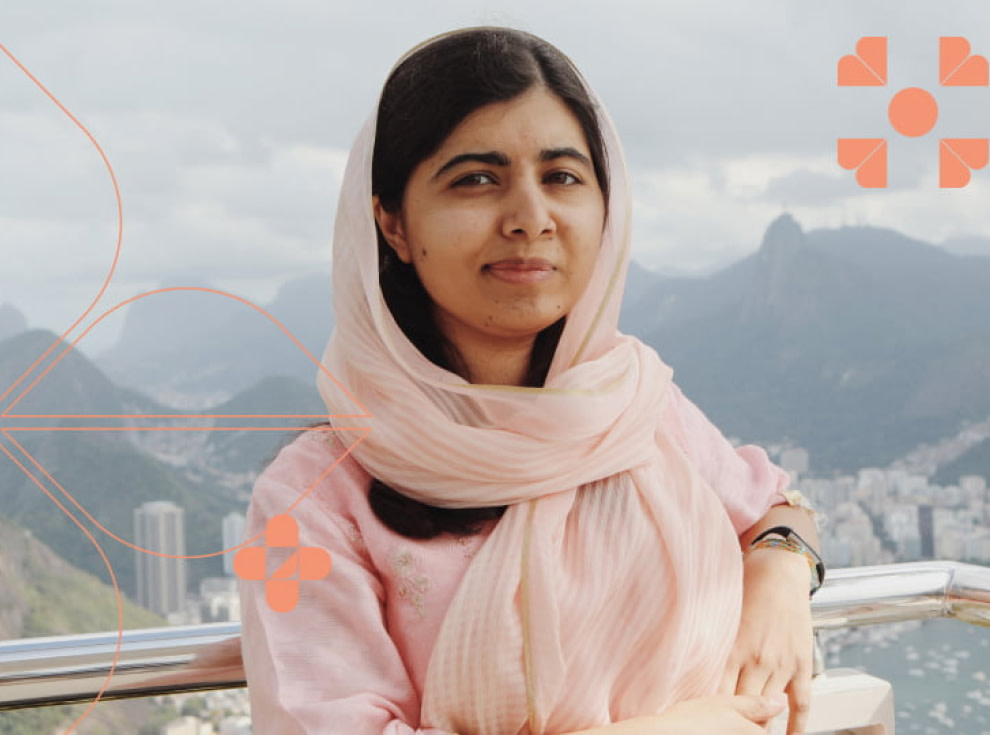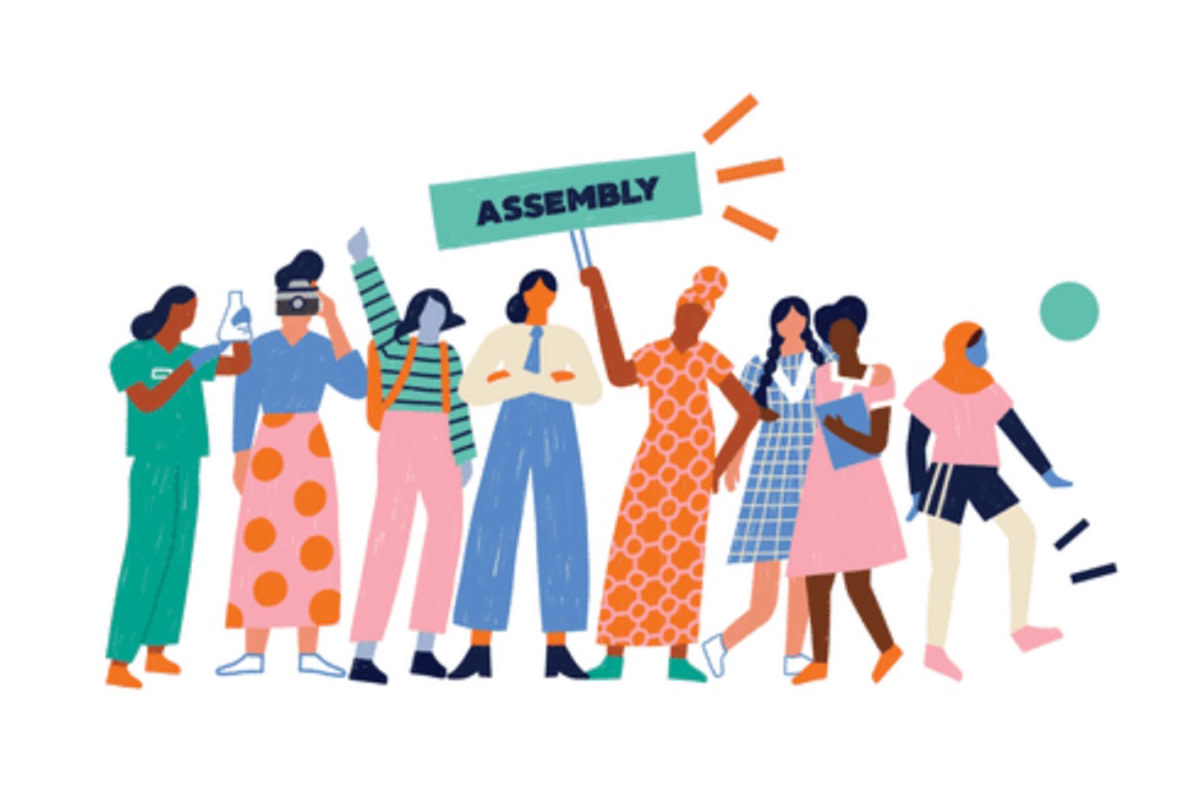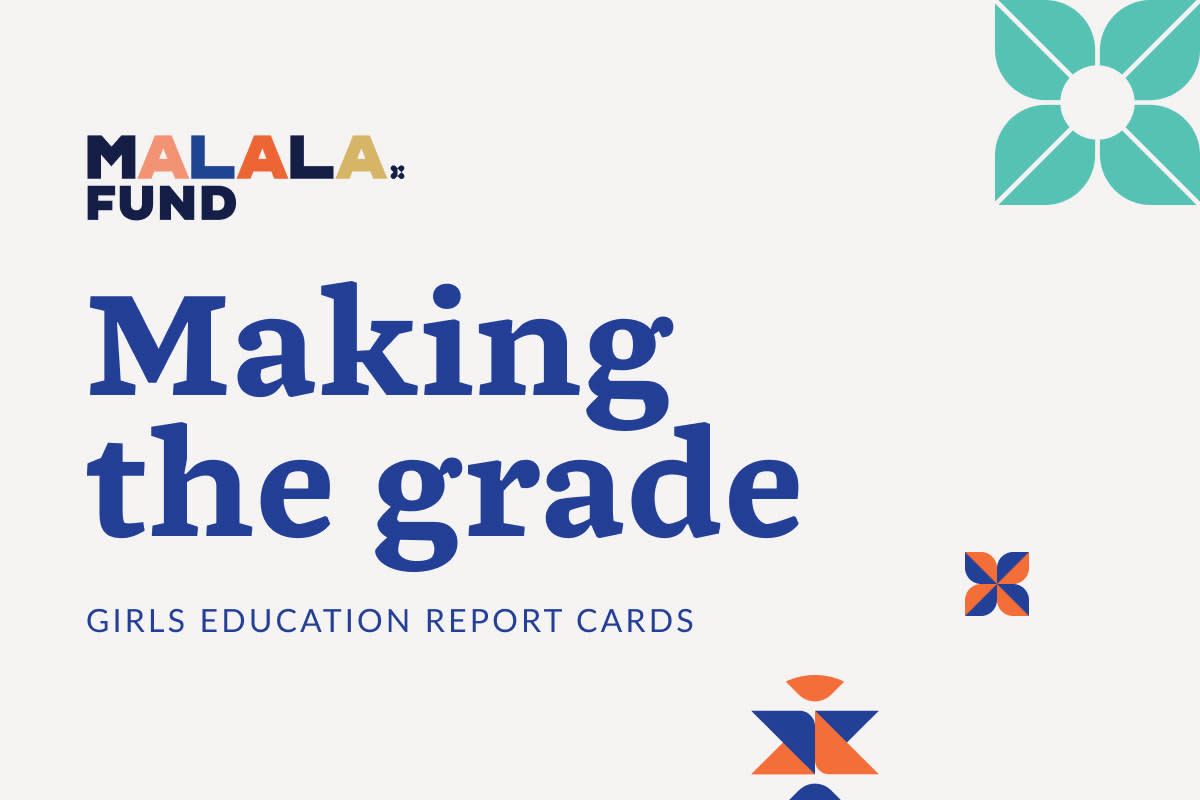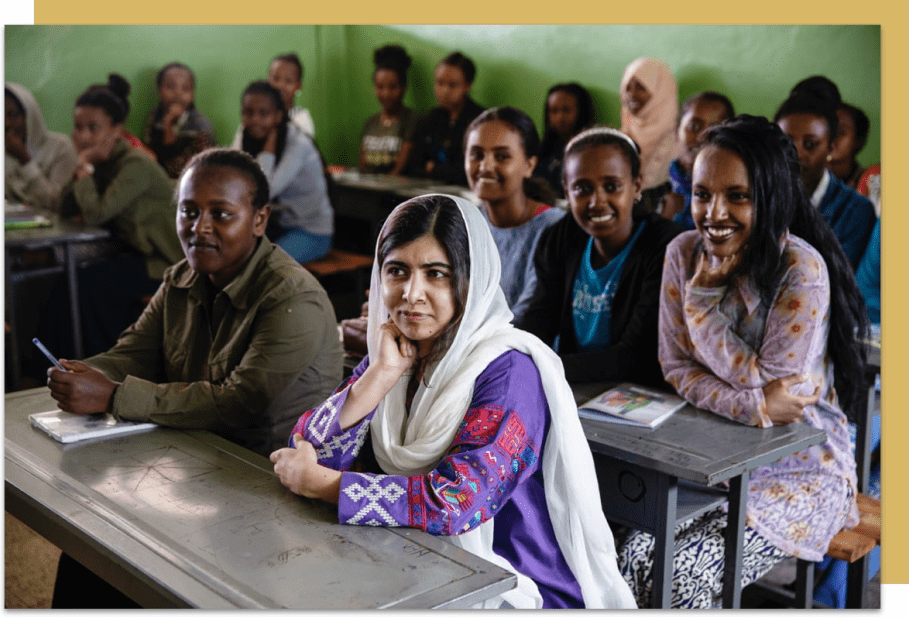
On International Women’s Day, an event co-hosted by Malala Fund will examine why and how leaders must codify gender apartheid as a crime against humanity.
In Afghanistan, the Taliban has issued more than 80 edicts and decrees that deprive millions of girls and women of their rights and dignity. This system of oppression is gender apartheid. Malala Fund has joined Afghan activists, legal scholars and human rights defenders to call on world leaders to recognise it as a crime against humanity.
Gender apartheid occurs when laws, decrees and policies exclude girls and women from public life and spaces. It is a system that acts with the intent to maintain institutionalised, systemic oppression and domination of one gender group over another. Today in Afghanistan, girls cannot go to secondary school and women cannot work or leave the house on their own — not even to go to the doctor, a salon or park. The options available to challenge the Taliban’s actions from inside and outside the country are limited. While apartheid is recognised as a crime against humanity, gender is not included in the official definition. Thus, Afghan women and girls currently have no legal recourse to hold the Taliban accountable for their crimes. Malala Fund is working to change this.
The U.N. is currently considering a draft of the new Crimes Against Humanity Treaty. The discussion is scheduled for April at the Sixth Committee session of the General Assembly. Malala Fund is advocating for leaders of participating countries to add and adopt language on gender apartheid that would codify it under international law. This would allow victims, survivors and the international community to hold the Taliban, and those who help them, accountable for violating women and girls’ fundamental rights.
Malala and Afghan girls speak out
Malala Yousafzai knows all too well what it feels like to be denied the right to education. At the prestigious 2023 Nelson Mandela Annual Lecture in December, Malala used her speech to draw the world’s attention to the gravity of gender apartheid and call for a global movement to end it.
“Girls kept out of school [for the past two years] are experiencing depression and anxiety. Some are turning to narcotics, attempting suicide. No girl, anywhere in the world, should have to suffer this way,” explained Malala. “If we, as a global community, accept the Taliban’s edicts, we will send a devastating message to girls everywhere: that they are less human. That your rights are up for debate. That we are willing to look away.”
Despite efforts to silence their voices, women and girls — from inside and outside Afghanistan — are resisting and sharing their stories. Assembly, Malala Fund’s digital publication, featured some of these stories in a special edition. Three Afghan education advocates discuss their work to provide underground schools and mobile libraries for girls to continue learning while they are banned from secondary education. In a personal essay, Aiman Ramizy details her memories of what life for girls was like in Afghanistan before the Taliban takeover. Sara Rahmani shares her art that draws attention to the plight of Afghan women.
Malala Fund’s Afghanistan Initiative
To advance the movement to end gender apartheid and help Afghan girls learn, Malala Fund has welcomed Sahar Halaimzai as Director of its Afghanistan Initiative. Sahar, an Afghan-British human rights advocate and writer, has more than 15 years of experience working at the intersection of social justice, campaigns and movement building.
“By advocating for the inclusion of gender apartheid in the Crimes Against Humanity Convention we aim to establish a global legal precedent and lay the groundwork for accountability and the preservation of human dignity,” explained Sahar. “But it goes beyond legal terminology — it's about the lives and futures of Afghan women and girls. Many Afghans — activists and educators, women and men, young and old — are risking everything for a chance to reclaim their freedom. We must find tools to support them and invest in their efforts. They are on the frontlines of a global struggle for girls’ and women’s rights”
In her role as Director, Sahar drives Malala Fund’s global advocacy agenda on Afghan girls’ education. She also manages the organisation’s Afghanistan grant portfolio and work to resettle Afghan girls’ education advocates and human rights defenders. To date, Malala Fund has provided nearly $5 million in funding for Afghan education activists — including those living in Afghanistan and in exile — who are helping girls access 12 years of free, safe, quality education.
International Women’s Day event
The next few weeks are critical to influencing member states working on the Crimes Against Humanity Treaty. To drive attention to the issue, Malala Fund is co-hosting “A high-level panel discussion on gender apartheid in Afghanistan” with the International Peace Institute and the Atlantic Council on Friday, March 8.
The event will discuss the deteriorating rights of women and girls in Afghanistan and highlight ongoing efforts to ensure justice and accountability. Malala will join speakers including Afghan activist Nayera Kohistani, legal expert Penelope Andrews, Ambassador of Malta Vanessa Frazier, Chair of the U.N. Working Group on Discrimination against Women and Girls Dorothy Estrada-Tanck and CNN reporter Jomana Karadsheh. The Global Justice Center, Rawadari, Georgetown’s Institute for Women, Peace & Security, Malta and Mexico are co-sponsoring the event.
You can watch the panel discussion live on March 8 at 10:30 a.m. EST.




